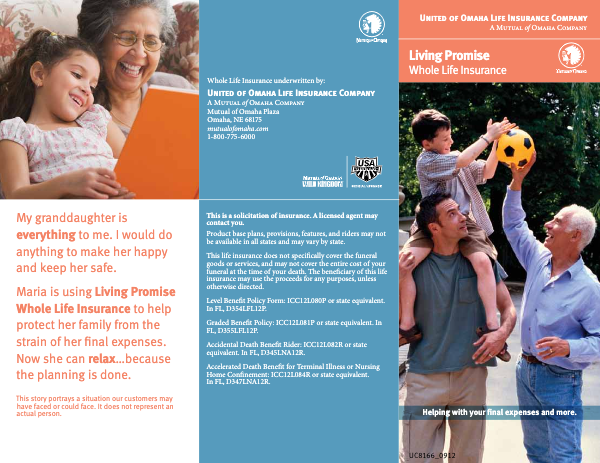As you approach retirement, your mind is buzzing with ideas about making the most of the next chapter, like finding ways to ensure your family’s safe and secure future. That means life insurance is high on your mind.
At 60, there are many options for life insurance, whether you want an affordable premium or sizable coverage—you just need to know where to look and what to look at.
Choose kindness.
You never know what battles people may be fighting.
Why 60-Year-Olds Buy Life Insurance
No matter their age, people buy life insurance for the same core reason: they don’t want their death to cause financial hardship.
There are two ways your death can cause financial hardship:
- Make expected expenses harder with the loss of your income
- Create new expenses for loved ones who no longer have your contributions, like babysitting and household management
These correspond to the two reasons 60-year-olds buy life insurance.
Income Replacement
Most 60-year-olds are still working and still bringing in an income. The key questions are:
- Do they have dependents?
- If their income is no longer coming in, how much hardship will this cause their dependents?
At this age, children are typically out of the house and supporting themselves financially. Therefore, the loss of your income at age 60 will likely cause much less hardship than it might have 20 years ago.
A 60-year-old’s most likely dependent is their spouse. If this describes you, ask yourself how much your spouse would need annually to cover their expenses and how many years they will need this for.
Final Expenses
The most common reason for purchasing life insurance at age 60 is to cover one’s final expenses.
According to the National Funeral Directors Association (NFDA), the average funeral costs $8,300.
This does not include a burial vault, which is generally required for cemetery burials, nor does it account for plot costs, a monument, grave marker, obituary, flowers, or priest/minister fees.
All said and done, your funeral bill can easily exceed $15,000.
Types of Life Insurance For 60-Year-Olds
Life insurance is not complicated.
It’s simply an agreement between you and an insurance company that says if you pass away while the agreement is active, the company will pay a pre-defined amount to your family.
The big question is – do you need whole life insurance or term life insurance?
Whole Life Insurance
There are two things you need to know about whole life insurance.
First, whole life insurance lasts your whole life. As long as you pay your monthly premiums, your policy will never expire.
Second, whole life policies have both a death benefit and a savings component (called “cash value”). Your “cash value” will grow over time, and you can use it (while living) for anything — it’s yours.
Term Life Insurance
Two things to know about term life insurance:
First, term life is temporary insurance. A term policy covers you for a fixed duration, generally between 10 and 30 years.
If you pass away during the term, your beneficiary will receive a payout; otherwise, your coverage expires, and nothing will be paid.
Why might someone want this? Term life insurance is significantly cheaper than whole life insurance.
For example, a 60-year-old woman could get $25,000 of whole life coverage for $75. For that same $75, she could get $125,000 of term life coverage. That extra $100K could do a lot for her loved ones.
Choose kindness.
You never know what battles people may be fighting.
How Much Is Whole Life Insurance for 60-Year-Olds?
The rates shown below are Preferred rates for no medical exam life insurance (also known as burial insurance).
The insurance company will decide your final price based on your answers to application health questions and an automated check of your prescription drug history.
The chart below shows final expense whole life insurance rates for 60-year-old men women aged 60.
Whole Life Insurance: Monthly Rates
| Death Benefit | Male Rate | Female Rate |
|---|---|---|
| $5,000 | 21.80 | 18.04 |
| $10,000 | 38.50 | 32.71 |
| $15,000 | 55.19 | 47.25 |
| $20,000 | 71.89 | 61.80 |
| $25,000 | 88.59 | 76.35 |
| $50,000 | 172.08 | 149.08 |
Statistically, women have longer life expectancies than men, so they generally pay 10-15% less in premiums for the same amount of coverage.
To understand if these are good prices, calculate how much you’re likely to pay in total. At age 60, women have a remaining life expectancy of 23 years. Over that time, they would pay only $41,146 for a $50,000 death benefit.
Term Life Insurance Rates For 60-Year-Old Males and Females
A million-dollar life insurance policy for a 60-year-old man costs $678.69 per month. That’s $162,720 over their remaining life expectancy of ~20 years.
For a $500K term life insurance plan, a 60-year-old male would pay $380.49 if he were a non-smoker and almost triple that ($1,059) if he used tobacco in the past 12 months.
Term Life Insurance: Monthly Rates
| Death Benefit | Male Rate | Female Rate |
|---|---|---|
| $25,000 | 44.00 | 35.00 |
| $50,000 | 83.00 | 63.62 |
| $100,000 | 84.53 | 65.00 |
| $250,000 | 200.67 | 149.64 |
| $500,000 | 380.49 | 265.11 |
| $1,000,000 | 678.69 | 506.19 |
If you’re a woman looking for a million-dollar term life insurance policy, it’s going to run you a little over $500 per month if you don’t smoke and $1,540 if you do.
As for men, the amount of coverage you can buy per dollar increases significantly at the $100,000 mark. You can see this by how close the prices are for $50K vs. $100K of coverage.
Our Recommendation For 60-Year-Olds
So what should you do?
Final Expenses
If you’re buying life insurance to cover your final expenses, your decision is easy. Final expenses are permanent (i.e., they’ll exist no matter when you die), so you need permanent (whole) life insurance.
Use our quoter below to check your rate.
Income Replacement
If you’re buying life insurance to replace your income, you’ll need term life insurance.
Because these policies expire, you have to consider your life expectancy. According to the Social Security Administration’s 2023 Trustees Report, men who are currently 60 years old will live another 20 years. Therefore, a 25-year term life insurance policy is a safe option.
Women age 60 have a remaining life expectancy of 24 years. That makes a 25-year term life insurance policy too risky for us to recommend.
One carrier (Americo Life) does offer a 30-year term life insurance policy. This policy is not cheap, but the upside is that you have a large buffer over your life expectancy.
In the section below, we outline the specific companies we recommend for each case.
Choose kindness.
You never know what battles people may be fighting.
Best Life Insurance Companies for 60-Year-Olds
Mutual of Omaha
One of the best options for a 60-year-old is the Living Promise Whole Life Insurance policy from United of Omaha. This policy pays benefits directly to your loved ones so they can cover final expenses, bills, or debt you leave behind.
- Face amounts from $2,000 to $50,000
- No medical exam required
- Premiums never increase
- Builds cash value that you can borrow against
- Accelerated Death Benefit rider allows you to use up to 98% of your death benefit while living if you are diagnosed with a terminal illness or confined to a nursing home
- Optional Accidental Death Benefit Rider, which will pay an additional 100% benefit to your beneficiaries if your death is accidental
| Policy Type | Whole Life |
|---|---|
| States | All except NY |
| Ages | 45 - 85 |
| Coverage | $2,000 - $50,000 |
| Duration | Lifelong |
| Waiting Period | No |
| Rate Lock | Yes |
- Excellent customer service
- No medical exam
- Flat, never-increasing premiums
- No waiting period
- Moderately strict underwriting
- ADHD
- Addisons Disease
- Anxiety Disorder
- Artery Disease
- Arthritis (Psoriatic)
- Arthritis (Rheumatoid)
- Asthma (Chronic)
- Asthma (Mild)
- Atrial Fibrillation
- Autism (High Functioning)
- Autism (Severe)
- Barlows Syndrome
- Bladder Pain (Chronic)
- Blood Clot
- Blood Disorder
- Bone Marrow Transplant
- Brain Tumor (Removed; Benign)
- Bronchitis (Acute)
- COVID-19
- CPAP Use (w/o Oxygen)
- Cancer (Skin)
- Cardioversion Treatment
- Cerebral Palsy
- Chronic Cough
- Chronic Pancreatitis
- Circulatory Disease
- Claudication
- Clogged Arteries
- Coronary Artery Disease
- Crohns Disease
- Declined for Life Insurance
- Depression
- Diabetes (No Insulin)
- Diabetes (With Insulin)
- Disability
- Encephalopathy
- Enlarged Heart
- Enlarged Prostate
- Epilepsy
- Felony
- Fibromyalgia
- Glaucoma
- Gout
- Guillain-Barre Syndrome
- Hashimotos Disease
- Heart Arrhythmia
- Heart Blockage
- Heart Catheterization
- Heart Disease
- Heart Murmur (Functional)
- Heart Murmur (Innocent)
- Hemophilia
- High Blood Pressure
- High Cholesterol
- Irregular Heartbeat
- Irritable Bowel Syn.
- Kidney Stones
- Low Blood Pressure
- Lupus (Non-Systemic)
- Lyme Disease
- Malaria
- Memory Loss
- Mitral Valve Prolapse
- Multiple Sclerosis (MS)
- Muscular Dystrophy
- Myasthenia Gravis
- Narcolepsy
- Neuropathy (Non-Diabetic)
- Osteoarthritis
- Osteoporosis
- PAD
- PTSD
- PVD
- Pagets Disease of the Bone
- Pain (Chronic)
- Pancreatic Insufficiency
- Panic Disorder
- Parole / Probation
- Pernicious Anemia
- Pneumonia
- Pulmonary Embolism
- Pulmonary Sarcoidosis
- Respiratory Failure
- Restless Leg Syndrome
- Scleroderma
- Seizures
- Sepsis
- Shingles
- Sjogrens Syndrome
- Sleep Apnea (No Oxygen)
- Spina Bifida
- Spinal Stenosis
- Stem Cell Transplant
- Suicide Attempt
- Thrombocythemia
- Thrombocytopenia
- Thrombosis (Blood Clots)
- Thyroid Disorders
- Tourettes
- Ulcer
- Ulcerative Colitis
- Unexplained Weight Loss (> 10 lbs)
- Vertigo
- Wegeners Granulomatosis
- Wet Macular Degeneration
- Wolff-Park. Syndrome
- ADL Assistance Required
- Alcohol / Drug Abuse
- Aneurysm (Corrected)
- Aneurysm (Not Corrected)
- Angina
- Angioplasty
- Assisted Living Facility
- Awaiting Surgery
- Awaiting Test Results
- Bedridden
- Brain Tumor (Not Removed; Benign)
- CHF
- CPAP Use (w/Oxygen)
- Cancer (Not Skin)
- Cardiac Ablation
- Cardiomyopathy
- Circulatory Surgery
- Coronary Artery Bypass
- DUI / DWI
- Defibrillator
- Diabetic Coma
- Gastric Bypass
- Heart Attack
- Heart Surgery
- Heart Valve Surgery
- Hemorrhagic Stroke
- Hodgkins Lymphoma
- Home Health Care
- Hospitalization
- Huntingtons Disease
- Hypertrophic Cardiomyopathy
- Insulin Shock
- Intracerebral Hemorrhage
- Lap Band Surgery
- Leukemia
- Liver Disease
- Liver Disorder
- Melanoma
- Multiple Myeloma
- Myocarditis
- Nephropathy
- Neuropathy
- Non-Hodgkins Lymphoma
- Nursing Home
- Organ Transplant (Completed)
- Oxygen (Non-Continuous)
- Oxygen (Sleep Apnea Use Only)
- Oxygen Use (Continuous)
- Pacemaker
- Paralysis
- Paraplegia
- Pending Hospitalization
- Pending Surgery
- Quadriplegia
- Retinopathy
- Sleep Apnea (w/Oxygen)
- Stent Placement
- Stroke / TIA
- Watchman Implant
- Wheelchair (Confined)
- Wheelchair (Not Confined)
Transamerica
Trendsetter Super Term Life insurance from Transamerica offers level premiums, a conversion option until age 70, and up to $2 million of coverage for 60-year-olds with no medical exam.
- Face amounts vary from $25,000 to $10,000,000+
- No medical exam is required for policies up to $2 million
- Premiums never increase
- Fixed terms of 10, 15, 20, 25, or 30 years
- Accelerated Death Benefit Rider allows you to receive a portion of your policy’s payout while living if you’re diagnosed with a terminal illness or confined to a nursing home
- Optional Accidental Death Benefit Rider, which pays an additional 100% benefit to your beneficiaries if your death is accidental.
- Conversion option allows you to switch to permanent life insurance without taking a medical exam.
Americo
Americo offers a term life insurance product known as HMS Plus 100. The reason we included this is that Americo is the one carrier that offers 30-year policies to 60-year-old men and women.
- Face amounts range from $25,000 to $450,000
- No medical exam required
- Premiums never increase
- Fixed term of 15, 20, 25, or 30 years.
- Includes three Living Benefits riders that allow you to use some of your death benefit while living if you are diagnosed with a wide range of critical, chronic, and terminal conditions
- Optional Waiver of Premium Rider, which waives your monthly payments if you have a qualifying disability
Article Sources
- Transamerica. Term Life Insurance
- Mutual of Omaha. Calculating your Life Insurance Needs



